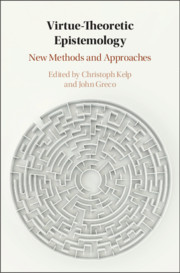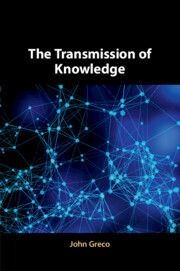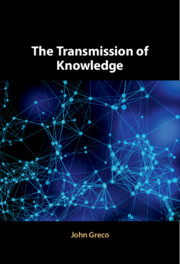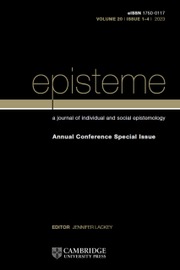Achieving Knowledge
When we affirm (or deny) that someone knows something, we are making a value judgment of sorts - we are claiming that there is something superior (or inferior) about that person's opinion, or their evidence, or perhaps about them. A central task of the theory of knowledge is to investigate the sort of evaluation at issue. This is the first book to make 'epistemic normativity,' or the normative dimension of knowledge and knowledge ascriptions, its central focus. John Greco argues that knowledge is a kind of achievement, as opposed to mere lucky success. This locates knowledge within a broader, familiar normative domain. By reflecting on our thinking and practices in this domain, it is argued, we gain insight into what knowledge is and what kind of value it has for us.
- First book to make the normative dimension of knowledge and knowledge ascriptions its central focus
- Addresses a range of perennial and contemporary problems in epistemology providing the reader with a thorough study of the issues in this area
- Each chapter offers a self-contained and accessible treatment of an important problem in the theory of knowledge
Reviews & endorsements
"Achieving Knowledge: A Virtue-Theoretic Account of Epistemic Normativity is an admirable piece of work, a well-argued and insightful book. It is a strength of the book that Greco has read widely on the topic and attempts to synthesize much of what has been written."
--George Lăzăroiu, PhD /IISHSS, New York, Review of Contemporary Philosophy
"...It is an honor to review this book.... the book is an excellent example of the pursuit of an important research project.... the way the book is laid out (as well as the updatings of the papers the other chapters are based on) make the book a great read..."
--Trent Dougherty, Baylor University, American Catholic Philosophical Quarterly
"...Achieving Knowledge is a very competent addition to the literature, clearly meriting the attention of the growing number of epistemologists concerned with questions of value, virtue and justification... Achieving Knowledge is fundamentally an attempt to integrate competing intuitions concerning epistemic normativity into a single unifying theory..."
--Michael-John Turp, University of Durham, UK, Philosophy in Review
Product details
May 2010Adobe eBook Reader
9780511730696
0 pages
0kg
2 tables
This ISBN is for an eBook version which is distributed on our behalf by a third party.
Table of Contents
- Preface
- Part I. Epistemic Normativity:
- 1. Knowledge as success from ability
- 2. Against deontology
- 3. Against internalism
- 4. Against evidentialism
- Part II. Problems for Everyone:
- 5. The nature of knowledge
- 6. The value of knowledge
- 7. Knowledge and context
- 8. The Pyrrhonian problematic
- Part III. Problems for Reliabilism:
- 9. The problem of strange and fleeting processes
- 10. The problem of defeating evidence
- 11. The problem of easy knowledge
- Bibliography
- Index.






